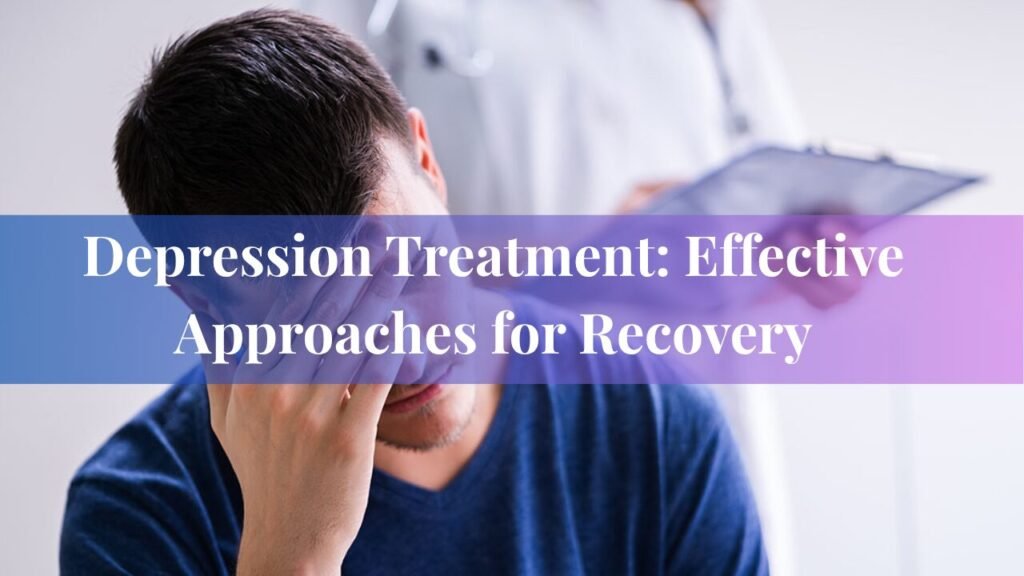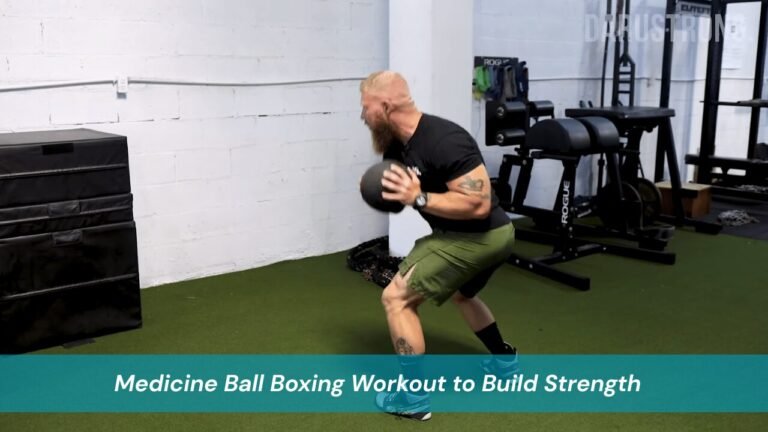Depression is not just a passing feeling of sadness, it is a serious, often chronic mental health disorder affecting mood, thinking, and daily functioning. According to the World Health Organization, over 280 million people globally live with depression. Fortunately, modern methods of depression treatment offer hope through medications, psychotherapies, lifestyle adjustments, and innovative technologies.
This comprehensive guide explores evidence-based treatments for depression, highlights real-world experiences, and supports all claims with credible data and sources. Whether you are seeking help for yourself or supporting a loved one, understanding the best treatment options is crucial.
Understanding Depression
Depression, clinically defined as Major Depressive Disorder (MDD), is characterized by persistent feelings of sadness, fatigue, and loss of interest. It may also cause sleep issues, appetite changes, brain fog, and physical pains. This disorder can range from mild to severe and significantly interferes with daily life.
Mild to moderate depression often responds well to therapies and lifestyle changes, while severe depression may require medication or combined interventions. Treatment-resistant depression (TRD) affects around 30% of people with depression, even after first-line treatments. Early recognition and treatment lead to significantly better outcomes.
Psychotherapy (Talk Therapy)
Therapies such as cognitive behavioral therapy (CBT), interpersonal therapy (IPT), and behavioral activation help identify and change negative thought patterns and behaviors. CBT focuses on adjusting unhelpful thinking and behavior patterns, while behavioral activation encourages re-engagement in meaningful activities. Interpersonal therapy aims to improve relationships and social functioning.
Evidence shows combining medication with therapy is more effective. In a JAMA study of adults aged 60+, 80% of those receiving both avoided relapse, compared to 57% on medication only. For mild to moderate cases, low-intensity CBT in forms such as self-help, online modules, or group sessions is recommended by NICE. Regular individual or group psychotherapy can effectively reduce symptoms.
Medications
Antidepressants are a cornerstone of moderate to severe depression treatment. First-line options include SSRIs like fluoxetine and escitalopram, and SNRIs like venlafaxine, with second-generation alternatives such as atypical antidepressants also widely used. Only a fraction 30–50% achieve full remission, while others have partial or no response. Antidepressants outperform placebo, but the absolute benefit is moderate.
Long-term use requires tapering to avoid withdrawal symptoms, which may include flu-like sensations, insomnia, nausea, imbalance, sensory disturbances, and hyperarousal. Risks for children and teens include increased suicidal thoughts in the first one to two months. Clinical guidelines prefer antidepressants combined with psychotherapy for moderate-to-severe depression, and shared decision-making should weigh benefits, side effects, and patient preferences.
Lifestyle and Self-Care Strategies
Lifestyle strategies can significantly support and enhance traditional treatment options. Regular physical activity, relaxation, and stress management are linked to reduced severity of symptoms. Good sleep hygiene, healthy nutrition, and reducing alcohol or drug use form the foundation of a healthy recovery process.
Social support, including community engagement, group activities, or peer support networks, can help buffer against depression. Psychoeducation also plays an important role by helping patients understand triggers and track symptoms. Daily habits are critical to maintaining sustained recovery.
Neuromodulation Techniques
Repetitive Transcranial Magnetic Stimulation (rTMS) is FDA-approved for treatment-resistant depression. Personalized and accelerated rTMS has yielded remission rates of up to 79% in severe cases, with ongoing research focused on optimizing targeting parameters. Electroconvulsive Therapy (ECT) is typically used when other treatments fail or in emergencies such as high suicide risk.
Meta-analyses show ECT produces remission rates of roughly 50–60% in severe or treatment-resistant depression, offering superior efficacy compared to medication alone. However, careful maintenance strategies are required to prevent relapse.
Advanced and Emerging Treatments
Ketamine, delivered intravenously, and esketamine, available as the FDA-approved nasal spray “Spravato,” offer rapid relief often within hours. These are primarily used in treatment-resistant depression or urgent suicidal ideation cases. However, they carry risks including dependency, memory issues, and urinary problems, necessitating strict clinical oversight.
Psychedelic-assisted therapies, such as psilocybin and ayahuasca, are also showing promise. Psilocybin has FDA “breakthrough therapy” status for treatment-resistant depression, with remission rates of around 67% in small trials. These treatments remain experimental and require proper regulatory frameworks, safety protocols, and integration with psychotherapy.
Adjunctive Medications and Anti-inflammatory Agents
Lithium augmentation significantly improves remission rates in patients treated with SSRIs. Other options include thyroid supplementation (liothyronine), antipsychotics such as quetiapine or aripiprazole, and stimulants. Anti-inflammatory agents and GLP-1 drugs like Ozempic are also being studied for their mood benefits, particularly due to their anti-inflammatory effects. Studies in older adults have shown these drugs may reduce depression risk. Interestingly, SSRIs may enhance immune function, which could also support cancer therapies.
Step-by-Step Treatment Plan
A thorough assessment involves a clinical interview, questionnaires like the PHQ-9, and checking for comorbidities, physical symptoms, or suicidal risk. Treatment is tailored to severity: mild depression is often managed with therapy and lifestyle changes; moderate cases may require therapy plus medication; severe or treatment-resistant depression may call for combination therapy, medication, and neuromodulation.
Shared decision-making ensures that all options are discussed openly with the patient, including therapy, behavioral activation, medication, and emerging interventions. Monitoring and follow-up involve tracking symptom scores monthly and adjusting strategies if no response is seen after 6–8 weeks.
For partial or non-response, clinicians may raise the dose, switch antidepressants, or augment treatment with lithium or antipsychotics. Advanced therapies like rTMS, ketamine, esketamine, ECT, or psychedelic therapy may be considered in resistant cases. Prevention and maintenance rely on continued therapy, possibly low-dose medication, lifestyle habits, and social support.
Real-Life Experiences
Real-world success stories underscore the value of personalized care. A Stanford study demonstrated that accelerated rTMS led to a 79% remission rate in severe cases. Ms. A, aged 55, was able to regain employment and joy after ECT followed by maintenance lithium. Mr. B, a patient with treatment-resistant depression, found lasting relief through ketamine infusions combined with mindfulness therapy. These examples illustrate that with evolving, individualized treatment plans, recovery is achievable.
FAQ
Are antidepressants safe long-term?
Generally safe when managed with regular follow-ups. Taper slowly to avoid withdrawal. Side effects vary by drug; shared decision-making is key .
How quickly do new treatments work?
Ketamine/esketamine often show rapid effects within hours. Psilocybin shows remission rates up to 67%, but long-term data is limited .
What if my depression doesn’t improve?
Discuss escalation: adjust medication, add augmentation, move to neuromodulation (rTMS/ECT), or consider experimental therapies under professional guidance .
Can lifestyle changes make a difference?
Yes exercise, sleep hygiene, stress management, diet, and social connection significantly support recovery and prevent relapse .
Conclusion
Effective depression treatment is personalized, evidence-based, and multi-faceted. Early intervention with therapy and lifestyle support can set the foundation for recovery. Medication should be used when necessary and carefully monitored, often combined with therapy for better outcomes. Neuromodulation or advanced therapies may be introduced when required, and real-world experiences prove that recovery is possible.
If you or someone you care about is experiencing symptoms of depression, reach out to a mental health professional, physician, or trusted support system. Healing begins with the first step making the choice to seek help. Visit boxing essential to explore more.




